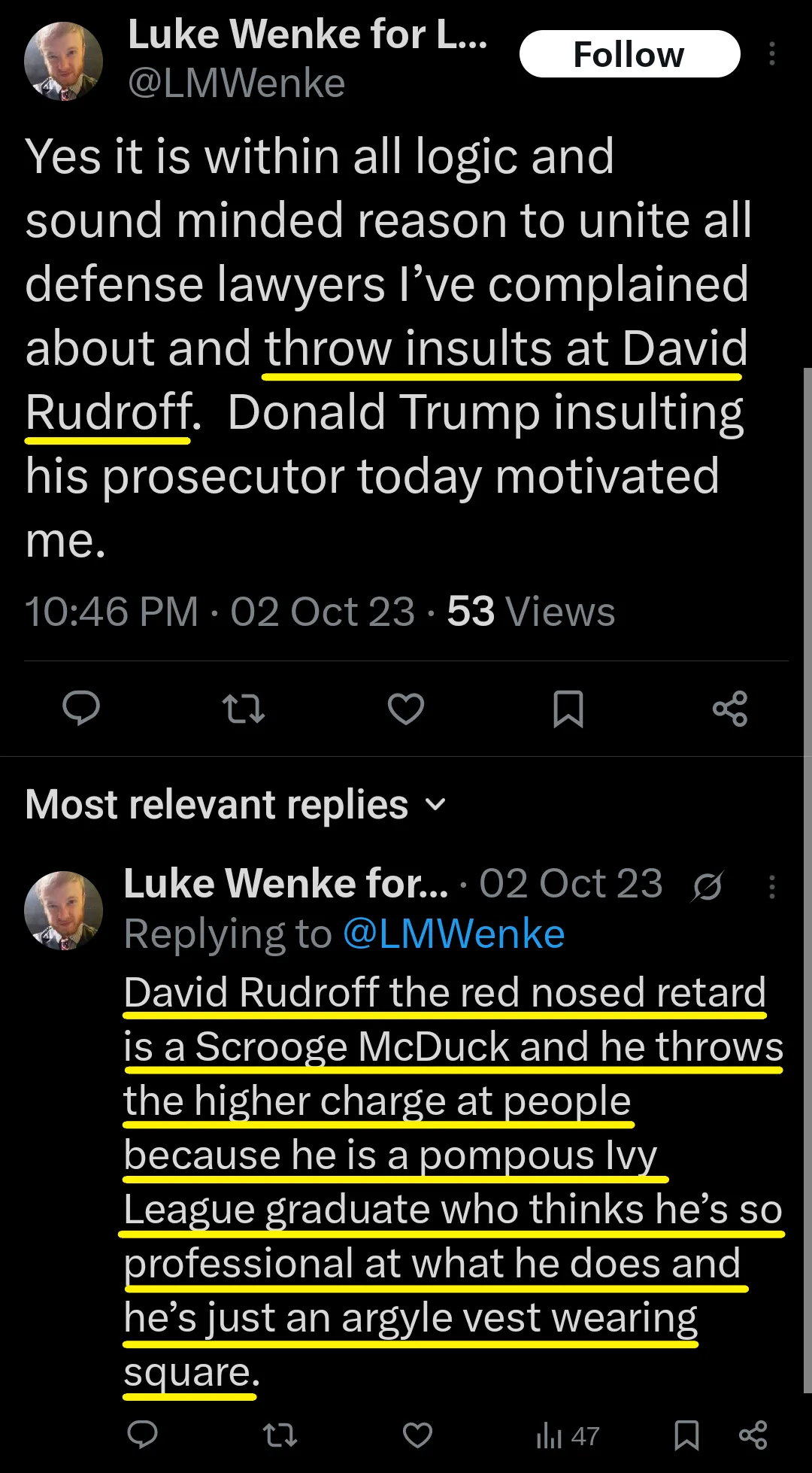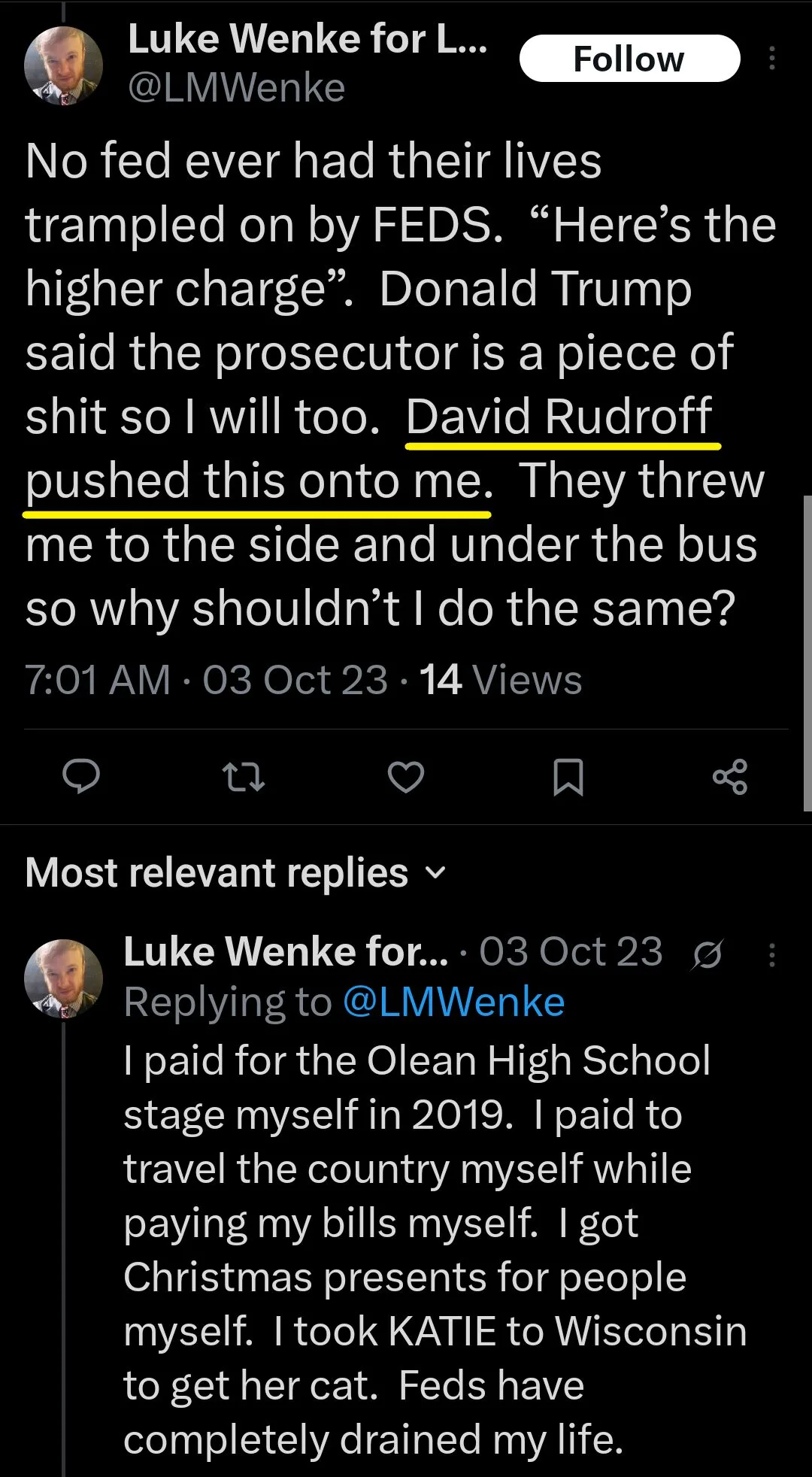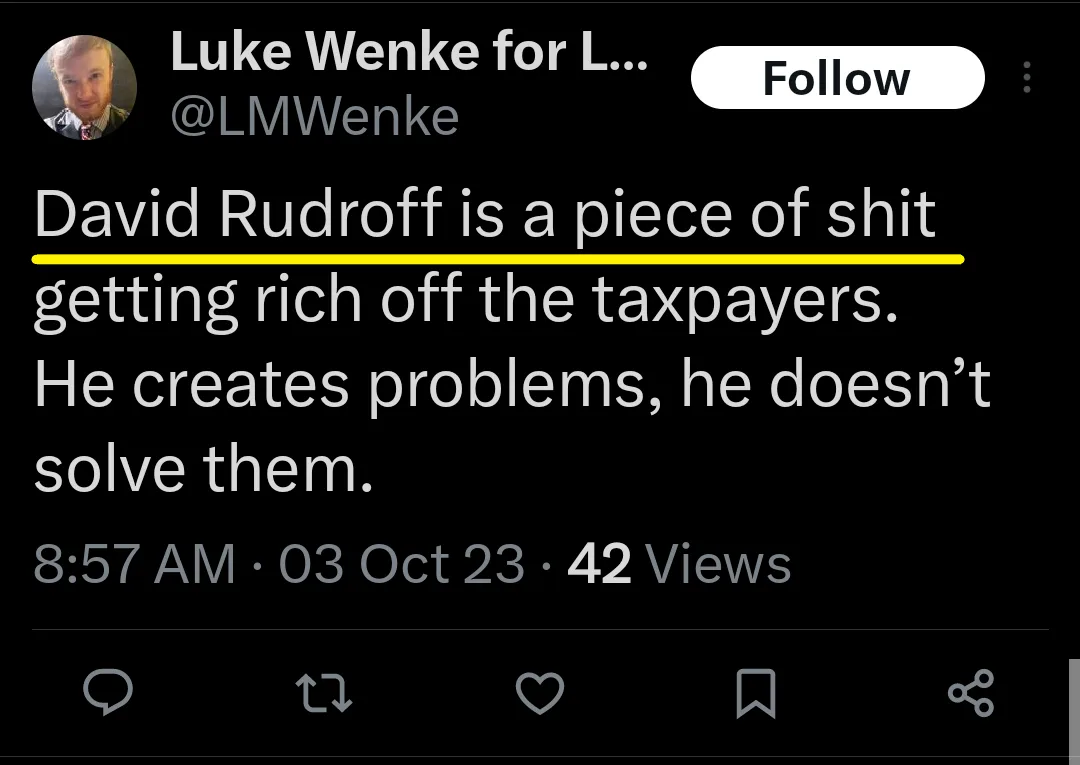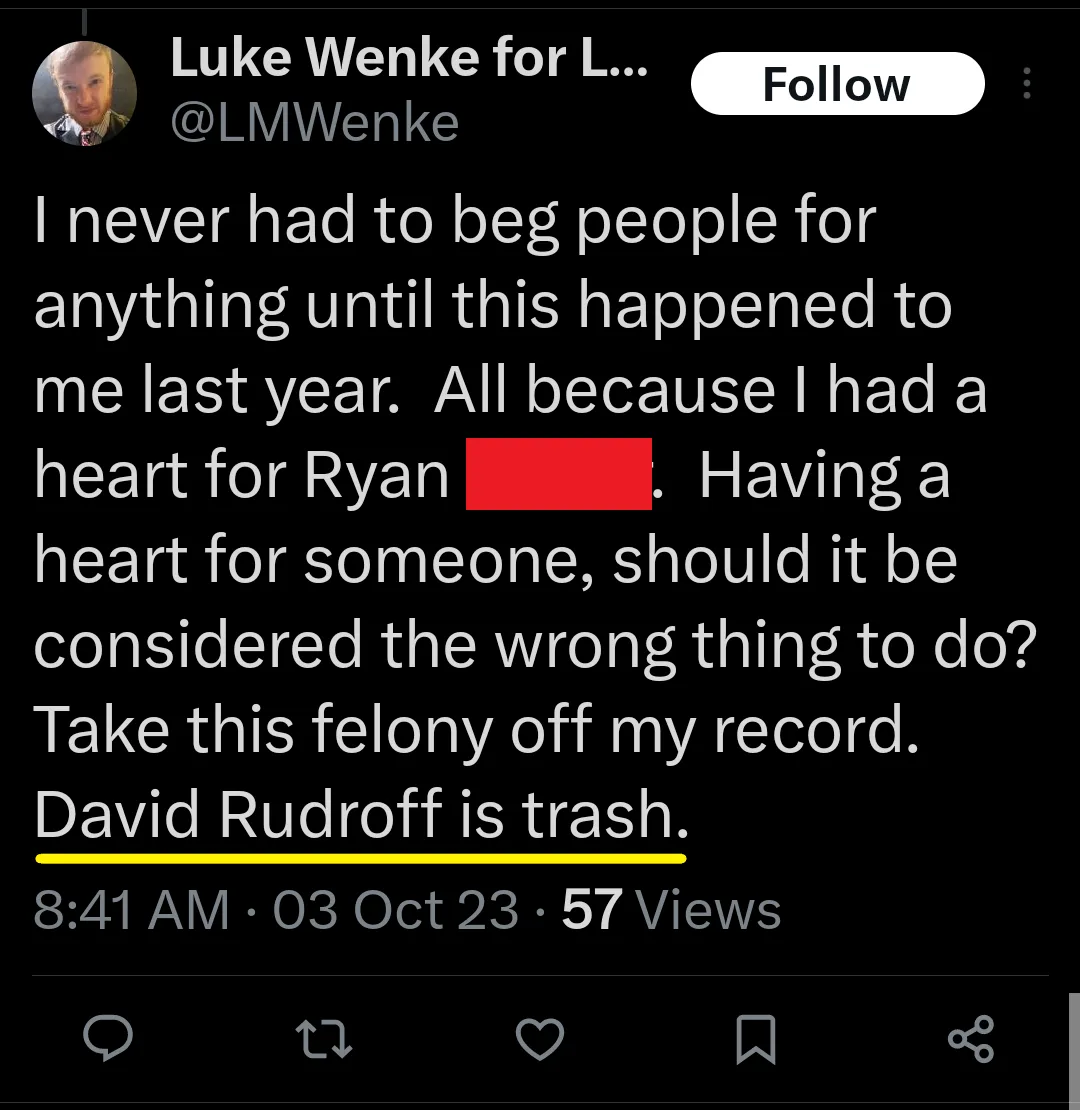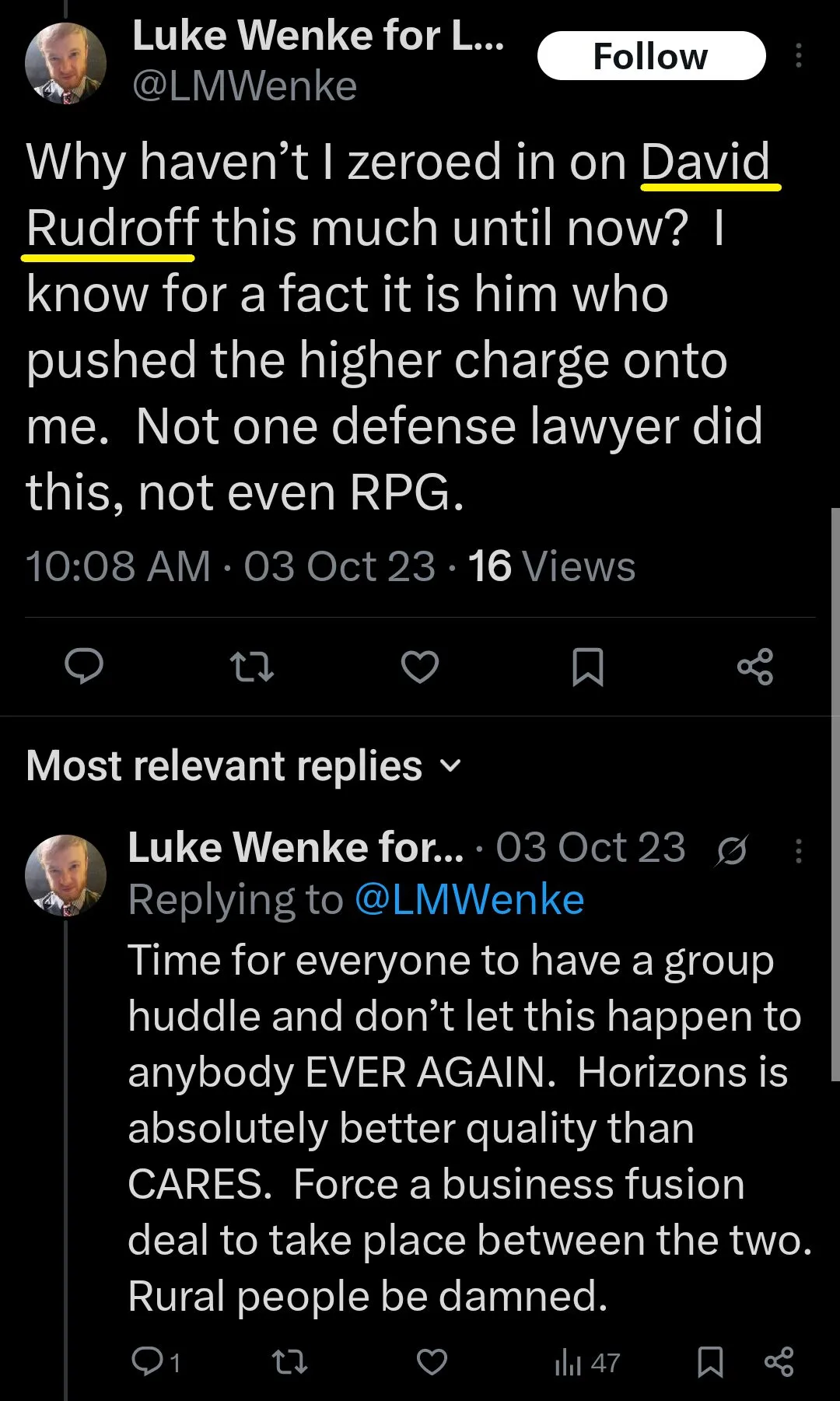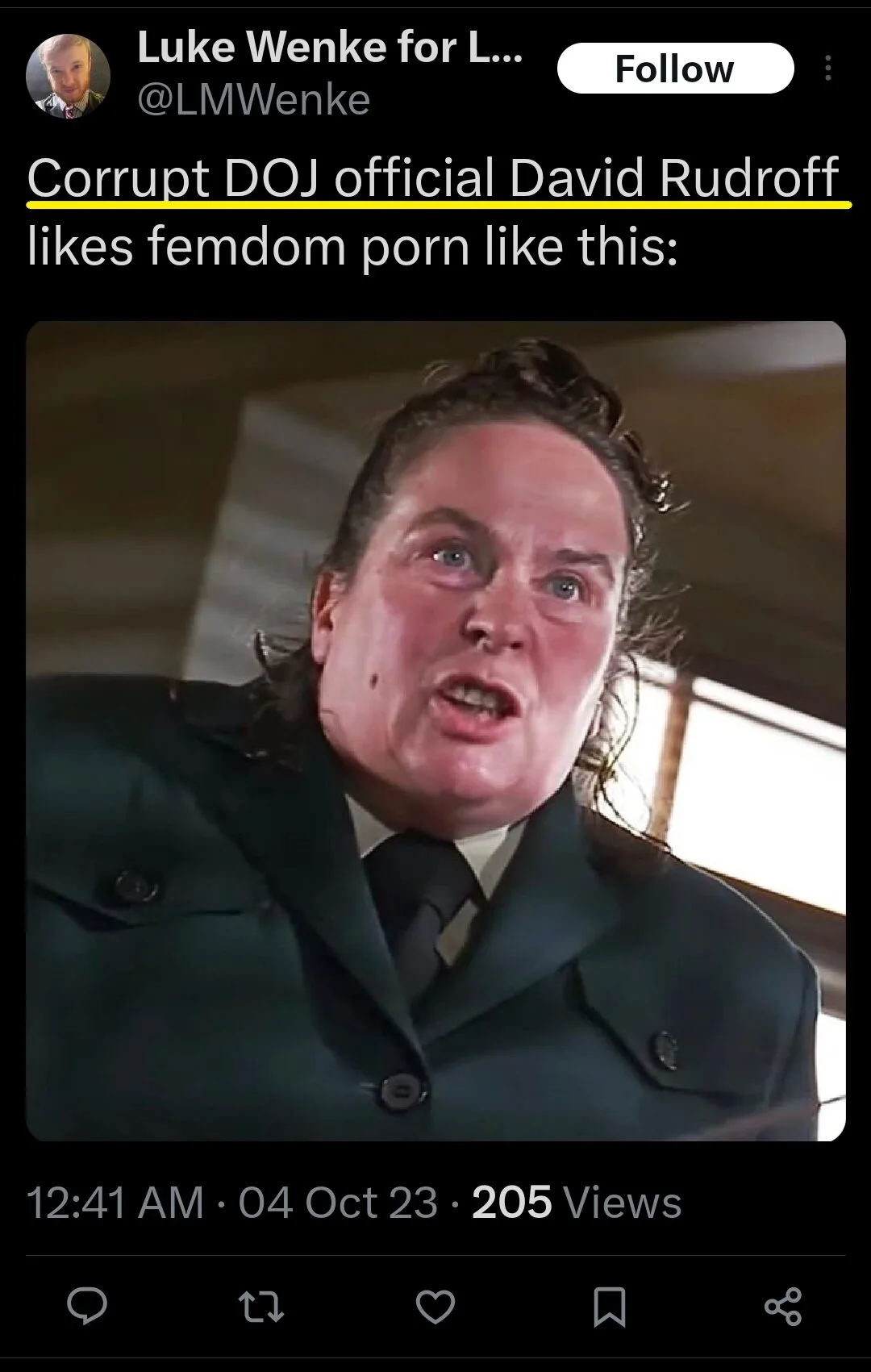Probation Violation #1: Guilty
In August 2023, Luke Wenke was found guilty of the first of several probation violation charges that he would accrue within seven months of his release from federal prison. After some back-and-forth between the prosecution and defence over whether Wenke’s email to his cyberstalking victim constituted indirect contact (and, therefore, a violation of his probation terms), the judge ruled that Wenke had, in fact, violated. The next step was to determine Luke Wenke’s punishment.
“Like a prelude to a violent crime…”
The following memorandum (Court Document #59) explains the government’s position: that Luke Wenke was not reformed and needed more time behind bars in order to learn his lesson and be effectively deterred from continuing to offend. More specifically, the prosecution emphasised how Luke Wenke continued contacting victims he was banned from having any interaction with — even from jail while locked up for unwanted contact.
I highlighted some key points for those who don’t feel like reading the fine print entirely, but I recommend reading the entire document if you’re trying to gain an accurate understanding of where the prosecution stood at that point in time.
As you can see in the above document, the prosecutor at the time, Assistant United States Attorney David Rudroff, seemed pretty darn convicted in his belief that Luke Wenke needed to return to prison. And it’s probably not difficult for anyone who’s had the displeasure of seeing how Luke Wenke operates to understand why the AUSA felt this way; in fact, this memorandum likely makes perfect sense.
The Prosecutor Admitted He Was Wrong to Recommend a Light Sentence for Luke Wenke
As evidenced in the following transcript (Court Document #84), Mr. Rudroff urged the court to impose a 12-month prison sentence during Luke Wenke’s sentencing hearing. Rudroff also reiterated his belief that he made a mistake earlier on in the case by recommending a lesser prison sentence than the standard guidelines call for, adding that this was the first time in his career that he was recommending an above-guideline sentence for a probation violation charge.
I highlighted some key points (the judge’s commentary is highlighted in yellow, while the prosecutor’s statements are highlighted in green and probation’s remarks are highlighted in blue). But these are just things that I think are important, and as always, I recommend reading the entire document for the sake of understanding it accurately.
The document also contains the defence’s argument against incarceration and for mental health treatment as an alternative to prison. I urge you to read that part, as well, but I’m going to follow the golden rule today (the one that goes, “If you don’t have anything nice to say…”).
Luke Wenke Document 84
After Hearing Both Arguments, the Judge Spared Luke Wenke from Prison.
The judge ultimately concluded that Luke Wenke’s “needs” would be better served in an outpatient mental health treatment setting, despite his consistent resistance to medication and therapy. And this unfortunately wouldn’t be the first time the court cut Luke Wenke loose for the sake of receiving treatment despite his established history of making a complete mockery of every program he’s ever been mandated to participate in. Here’s another transcript (Document #85) from a continuation hearing explaining the judge’s reasons for his decision. I’m going to withhold my own commentary because I have nothing kind to say about it.
85 – Transcript
No Longer On the Case.
For reasons that are unknown to me, Mr. Rudroff stopped participating in Luke Wenke’s criminal case in late 2023. I truly don’t know why he left the case, but I can’t help but wonder if the decision had something to do with the things Luke Wenke posted online about Rudroff. If the people overseeing this case ever wonder why it seems to some outsiders like Luke Wenke runs the show, here’s one reason. It seems like he bullied a prosecutor off the case. Maybe that’s not what happened, but from the outside looking in, all signs point toward it. And every prosecutor since has, in my humble opinion, taken a pathetically soft approach, almost as if they’re intimidated or afraid to advocate for an appropriate outcome. I’m not saying that’s what’s really happening, but that’s what it seems like to me.
Categories: Court documents: transcripts, social media, social media posts
Tags: Facebook, indirect contact, probation violations, psychiatric evaluations, [alleged] resistance to mental health treatment, screenshots, unwanted contact, X/Twitter









